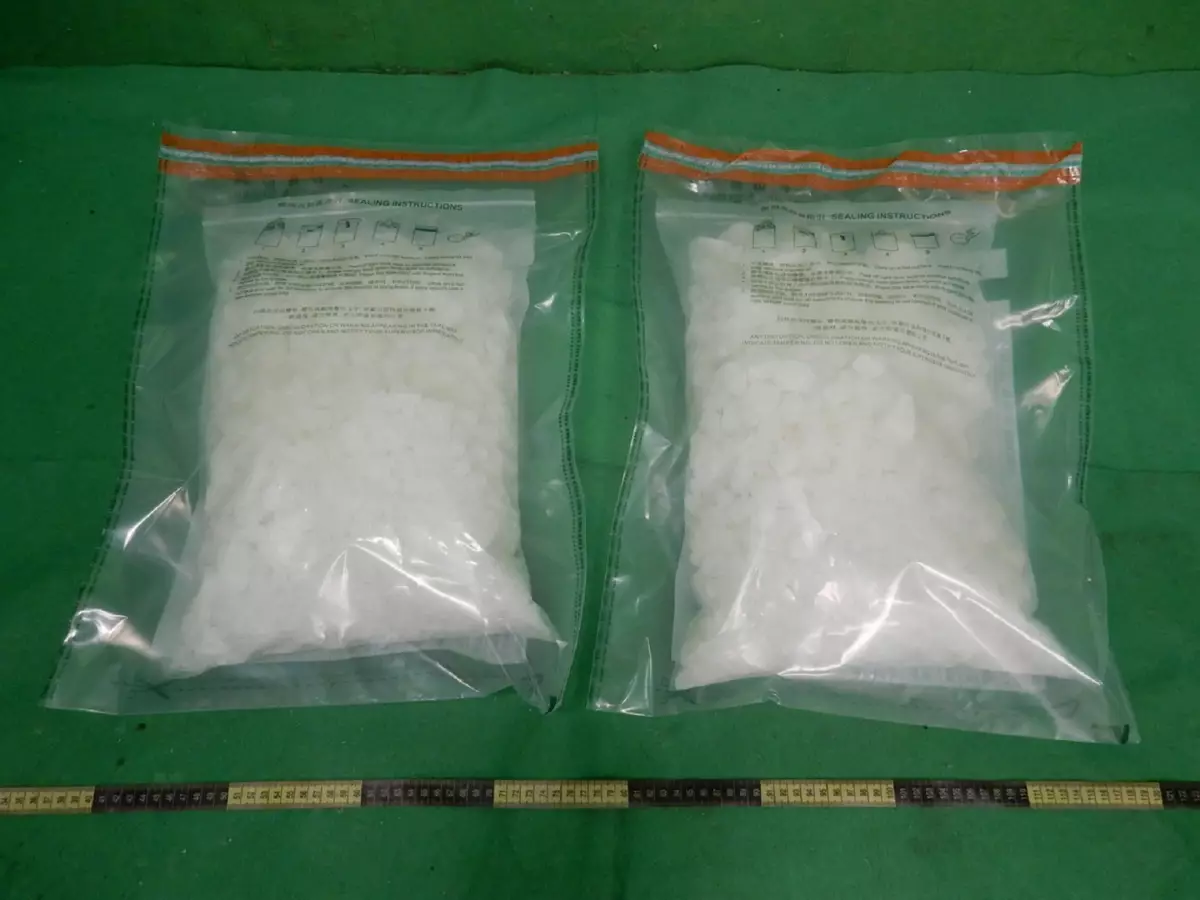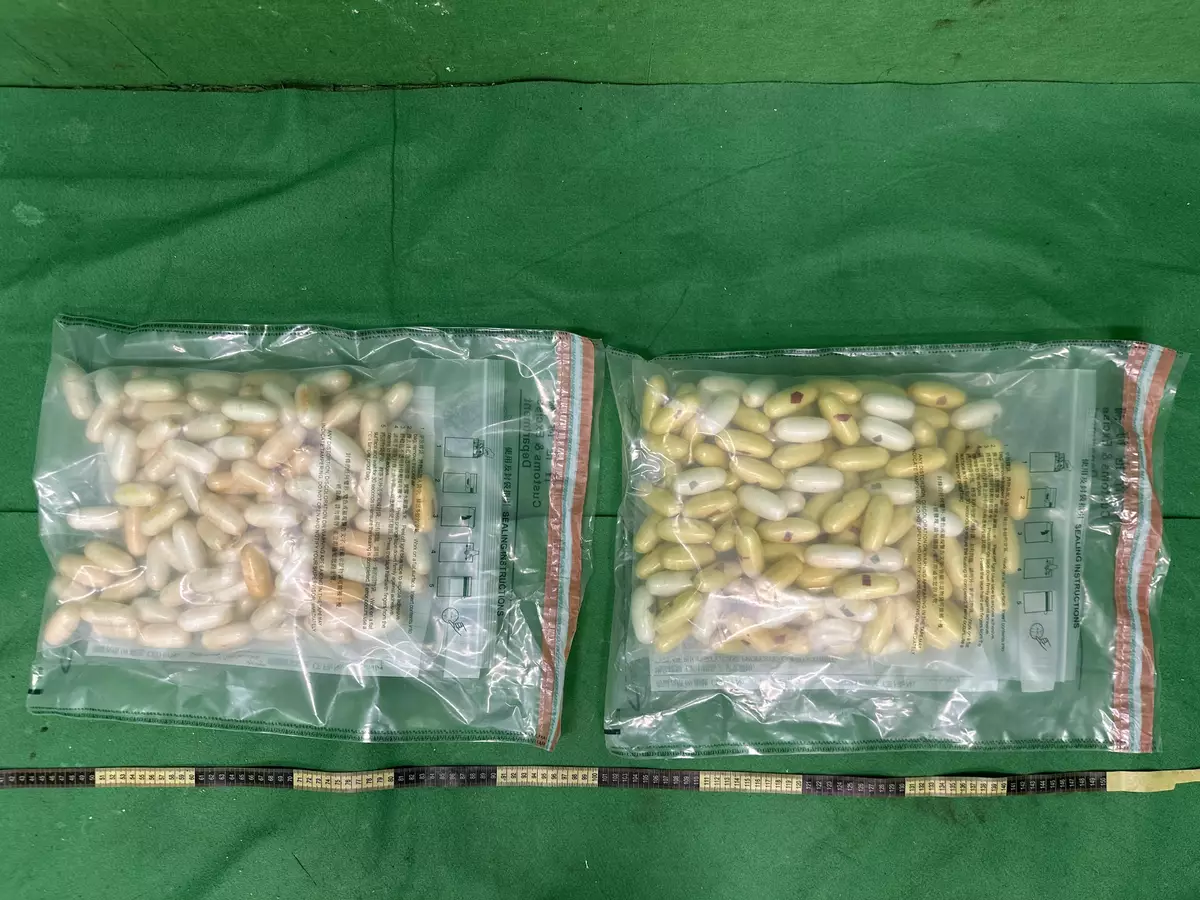CHP investigates suspected case of paralytic shellfish poisoning
The Centre for Health Protection (CHP) of the Department of Health is today (December 25) investigating a suspected case of paralytic shellfish poisoning affecting a 69-year-old woman.
The patient presented with numbness of mouth and limbs as well as vomiting and diarrhoea 30 minutes after consuming mussels at home yesterday (December 24). She attended the Accident and Emergency Department of Pamela Youde Nethersole Eastern Hospital on the same day and was subsequently admitted for treatment. The patient has been in a stable condition.
Initial enquiries revealed that the concerned seafood were purchased from a seafood stall in Chai Wan Market. An investigation by the CHP is continuing.
"Paralytic shellfish poisoning toxin is a natural toxin sometimes found in bivalve shellfish. It is heat-stable and cannot be destroyed through cooking," a spokesman for the CHP said.
"The symptoms of paralytic shellfish poisoning are predominantly neurological and the onset is usually within minutes to hours after ingestion of the shellfish. Initial symptoms may include tingling, numbness of the mouth and extremities, a headache, dizziness and gastrointestinal discomfort. In the majority of cases, symptoms are resolved completely within a few days. In severe cases, difficulty in swallowing and speech, paralysis with respiratory arrest and even death may occur," the spokesman added.
The spokesman reminded members of the public that they should seek medical advice immediately if they develop shellfish poisoning symptoms, and save any leftovers for investigation and laboratory testing.
To reduce the risk of shellfish poisoning, the public should:
Buy shellfish from reliable and licensed seafood shops;
Remove the viscera, gonads and roe before cooking and discard any cooking liquid before consumption;
Eat a smaller amount of shellfish in any one meal; and
When symptoms occur after consuming shellfish, seek medical advice immediately.
Hong Kong Customs seizes suspected cocaine and suspected ketamine at airport
Hong Kong Customs yesterday (December 24) and today (December 25) detected three drug trafficking cases at Hong Kong International Airport and seized about 6.6 kilograms of suspected cocaine and about 10kg of suspected ketamine with a total estimated market value of about $10 million.
The first case involved a 46-year-old male passenger arrived in Hong Kong from Lagos, Nigeria, via Addis Ababa, Ethiopia yesterday. During Customs clearance, Customs officers found him to be suspicious and suspected that the passenger had dangerous drugs concealed inside his body cavity. He was then escorted to the hospital for examination. Upon examination, the man was confirmed by a doctor to have foreign objects concealed inside his body cavity and was arrested subsequently. As at 7pm today, the arrested person has discharged 69 pellets of suspected cocaine weighing about 1.2kg in total.
The second case involved one male passenger, aged 29, and arrived in Hong Kong from London, England via Doha, Qatar, yesterday. During customs clearance, about 5.4kg of suspected cocaine was seized from his carry-on suitcase. The man was subsequently arrested. The dangerous drugs were concealed in two stuffed toys and put inside his carry-on suitcase.
The third case involved a 30-year-old female passenger arriving in Hong Kong from Frankfurt, Germany, today. During customs clearance, about 10kg of suspected ketamine was found in three plastic bags inside her check-in suitcase. The female was subsequently arrested.
The investigation of the first case is still ongoing and the arrested man is currently under medical surveillance.
The arrested persons of the second and the third case have each been charged with one count of trafficking in a dangerous drug. The cases will be brought up at the West Kowloon Magistrates' Courts tomorrow (December 26).
Customs will continue to step up enforcement against drug trafficking activities through intelligence analysis. The department also reminds members of the public to stay alert and not to participate in drug trafficking activities for monetary returns. They must not accept hiring or delegation from another party to carry controlled items into and out of Hong Kong. They are also reminded not to carry unknown items for other people.
Customs will continue to apply a risk assessment approach and focus on selecting passengers from high-risk regions for clearance to combat transnational drug trafficking activities.
Under the Dangerous Drugs Ordinance, trafficking in a dangerous drug is a serious offence. The maximum penalty upon conviction is a fine of $5 million and life imprisonment.
Members of the public may report any suspected drug trafficking activities to Customs' 24-hour hotline 182 8080 or its dedicated crime-reporting email account (crimereport@customs.gov.hk) or online form (eform.cefs.gov.hk/form/ced002).

Hong Kong Customs seizes suspected cocaine and suspected ketamine at airport Source: HKSAR Government Press Releases

Hong Kong Customs seizes suspected cocaine and suspected ketamine at airport Source: HKSAR Government Press Releases









